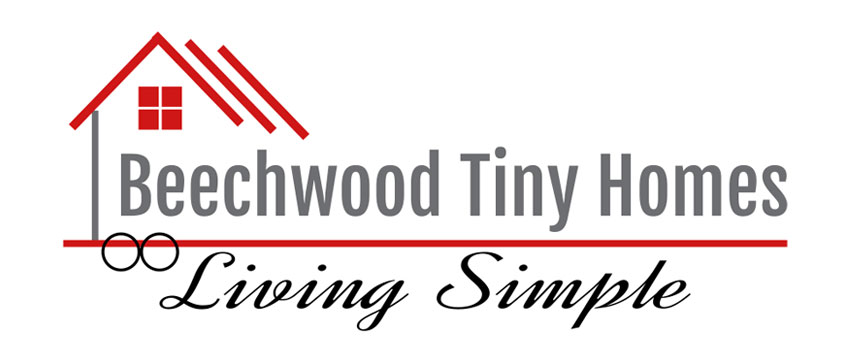As tiny homes gain popularity, one of the biggest questions potential homeowners face is, “Where can I park my tiny home?” Whether you own a Tiny Home on Wheels (THOW) or a Modular Tiny Home (MTH), understanding parking options and legalities is crucial. From finding the perfect spot to ensuring access to utilities, this guide will walk you through everything you need to know about parking your tiny home—whether it’s on wheels or a foundation.
At Beechwood Tiny Homes, we build high-quality tiny homes on wheels and modular homes, and we’re here to help you navigate the parking process with ease.
1. Know the Type of Tiny Home You Have
Understanding your tiny home’s classification will help determine where you can park it. There are two main types to consider:
- Tiny Homes on Wheels (THOW): These are classified as RVs in most areas, making them suitable for RV parks, campgrounds, or properties zoned for recreational vehicles.
- Modular Tiny Homes (MTH): Modular tiny homes are built off-site and then transported to their final location where they are permanently set on a foundation. These homes often comply with local building codes, making them more suitable for traditional residential land.
2. Understanding Local Zoning Laws for Both Tiny Homes on Wheels and Modular Tiny Homes
Local zoning regulations vary widely depending on your area, and understanding these laws is essential for finding the right place to park. Here’s what you need to know:
- Zoning for Tiny Homes on Wheels: Many areas allow long-term parking of RVs, including tiny homes on wheels, in RV parks or designated campgrounds. You may also be able to park on private land if the zoning laws permit it.
- Zoning for Modular Tiny Homes: Since modular homes are often viewed as permanent structures, they are subject to local building codes and zoning laws, much like traditional homes. These homes typically need to be placed on land zoned for residential use. In some areas, they are allowed as **Accessory Dwelling Units (ADUs)**, making them a great option for backyard living or rental properties.
3.Land Ownership vs. Renting Space
Whether you own land or rent space will influence your parking options:
- Owning Land: This gives you the freedom to set up your tiny home on your terms. Modular tiny homes often need to be placed on owned land due to the foundation requirement. You’ll need to check zoning laws to ensure your land allows for a tiny or modular home, and make sure utilities such as water, electricity, and sewage are accessible.
- Renting Land or Space in a Community: Tiny home communities and RV parks are becoming increasingly popular, offering long-term parking and necessary utilities for both THOWs and modular homes. Renting gives you flexibility and may include amenities like shared gardens, internet, and waste disposal.
4. Utility Connections: What to Look for When Parking
Whether you’re parking a tiny home on wheels or a modular home, access to utilities is key. Here’s what to consider:
- Water and Electricity: Many RV parks and tiny home communities offer hookups for water and electricity, making it easy to live comfortably. For modular homes on private land, you may need to connect to city services or install a septic system and well.
- Sewage Management: Be sure to have a plan for managing waste, whether you’re using an RV-style hookup in a campground, installing a composting toilet, or connecting to a septic system on private land.
5. Safety, Security, and Legal Considerations
No matter where you park, safety is a top priority:
- Security: Choose a well-lit, secure area to park your tiny home, especially if it’s in an RV park or temporary location. Look for gated communities or areas with good local reputations.
- Insurance: Ensure your tiny home is covered by appropriate insurance, whether it’s classified as an RV or a permanent dwelling.
- Permits and Compliance: Be sure to follow local laws regarding permits, especially if your tiny home is a modular build. Many areas require inspections or special permits to ensure compliance with building codes and zoning laws.
6. Temporary Parking Options: Travel Flexibility
For those with a Tiny Home on Wheels, flexibility in travel and short-term stays is one of the perks:
- Campgrounds and RV Parks: These provide temporary parking for your tiny home with essential amenities like electricity and water. Many parks allow stays of 14 to 30 days, so be sure to check the rules ahead of time.
- Public Lands: In some regions, you can park on public lands for a limited time, giving you the freedom to explore without long-term commitments.
7. Tiny Home Communities: A New Trend for Both THOWs and MTHs
Dedicated tiny home communities are growing in popularity, providing an excellent solution for those looking to park either tiny homes on wheels or modular tiny homes. These communities often feature shared utilities, gardens, and other amenities, as well as a supportive network of fellow tiny home owners. Whether you want a sense of community or simply need a turnkey solution, these neighborhoods can be a great option.
Ready to Park Your Tiny Home? We Can Help!
At Beechwood Tiny Homes, we specialize in crafting both Tiny Homes on Wheels and Modular Tiny Homes tailored to your needs.
Whether you’re looking for advice on finding the perfect parking spot, understanding local zoning laws, or need assistance with utilities, we’ve got you covered.
